Best Operating System for ChromebookThe most attractive aspect of a Chromebook is Google Chrome OS. However, there is little functionality and no chance for modification due to the locked-down approach. In reality, with Chrome OS, there is a lot of concern regarding user privacy. It would be best to simply unlock the bootloader to install Linux on a Chrome gadget. Thus Chromebook users are continually looking for an alternative operating system with more functionality, privacy, and convenience. The Linux operating system will be an excellent successor for this. In this article, you will learn about the best operating system for Chromebook. But before discussing the best-operating systems for Chromebook, you must know about the Chromebook. What is Chromebook?A Chromebook is a new type of low-cost laptop that runs the Linux-based Chrome OS and is intended to be used with an Internet connection. Chromebooks are very light, similar to ultrabooks, and do not require a lot of computing power or RAM. They are considerably different from laptops that run completely other operating systems, such as Android OS. It's an online system, so most of its work is stored in the cloud. Chromebooks effectively perform their basic functions, and it is completely portable. In order to function, they rely more on Google apps and cloud services. A Chromebook is a low-cost laptop that runs Google's Chrome OS rather than Microsoft's Windows. Chromebooks are immensely popular in educational circles because of their streamlined form and ease of use. Chromebooks will never be able to replace your feature-rich laptops, but they are well worth the investment. The Chrome OS emulates the feel of a Windows laptop, featuring a search button similar to the Windows Start button. In addition, it is extremely light in comparison to Windows and Mac OS. It includes everything from music and images to maps and business software. It provides the best of Google, Maps, Gmail, and Docs, all of which are securely kept in the cloud. The best aspect is that Chromebooks are automatically updated, so you don't have to worry about manual updates and downloads. Advantages and disadvantages of the ChromebooksThere are various advantages and disadvantages of Chromebooks. Some advantages and disadvantages of the Chromebooks are as follows: Advantages1. Inexpensive One of the most significant advantages of a Chromebook is its low cost. A Chromebook can be purchased for as minimum as $200, with the most of them costing between $300 and $400. Even mid-range laptops may cost twice or three times as much as this one. When you purchase a Chromebook, you will save a significant amount of money. 2. Cloud-based Storage Cloud storage is a sort of storage in which all of your data is saved in a virtual location on the internet that is specified to you. It is getting more popular with the advancement and growth of technology. When you purchase a Chromebook, you will receive 100GB of Google Drive storage for free. Other services, including as OneDrive and Dropbox, charge a fee for providing this type of storage. 3. Long Battery Life A Chromebook's average battery life is roughly six hours, while some versions can last up to thirteen hours. It is significantly higher in comparison to a mid-range regular laptop. However, modern laptops may offer the same range of battery life. 4. Lightweight Chromebooks are lighter and easier to take along than regular laptops because they lack traditional hardware. It is especially useful if you need a laptop to be carried with you at all times. It's important to remember that it's a cloud-based system, and you'll still need internet connectivity to use it. 5. Speedy Booting A Chromebook's fastest boot time is roughly 8 seconds. The main reason behind this speed is the usage of SSDs instead of HDDs. Disadvantages1. No Microsoft Office Chromebooks may not be the ideal solution for you if you use Microsoft Office or have used Microsoft Office for a long time. They are similar to MS Word in several aspects, but getting used to them may take some time. Google offers various free online suites of Office-like services. 2. Compatibility Most software developers do not create Chromebook software. However, there are various software accessible for both Windows and Mac OS. Although Chromebooks are primarily aimed at folks who prefer being on the cloud, they might be inconvenient when you require software for a specific task. 3. Storage Limitation Chromebooks typically feature around 32GB of total storage. The price is lower since they lack components included in standard laptops, but it also creates a storage issue because 32GB is not enough for a laptop. It makes up for this by offering 100GB of cloud storage. 4. Video Editing Due to the lack of software on ordinary laptops, you must complete most of your work online on a Chromebook. It includes video editing, and if you work in a job that requires you to do so, you're aware that many online editors allow you to edit videos in the same manner that offline editors do. 5. Gaming Chromebooks may not be the ideal option for you if you want to play games on your computer. These Chromebook systems aren't as powerful as other laptop systems on the market when it comes to dealing with the processing power required by most games these days. Operating System for ChromebookThere are various best-operating systems for Chromebook. Some of the best operating systems for Chromebook are as follows:
Arch Linux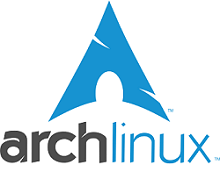
Arch Linux operating system is one of the most popular Linux distributions. It's best for advanced users and developers because its underlying DIY attitude and large online community support allow for customization and support. Arch Linux is very lightweight because it simply includes a kernel and a terminal. It may seem complex to beginners, but you may install any desktop environment and handle any package or component you require in your system. As a result, Arch Linux's functionality and capabilities make it perfect for Chromebook installation. The Arch Linux ISO image can be downloaded from the official website. Solus Operating System
Solus operating system is a great choice for new Linux users who are looking for a Windows-like experience on a Chromebook. It is designed for beginners with many features, built-in apps, and a proprietary desktop environment. Due to the availability of four desktop environments, it is also ideal for experienced users. Each desktop environment has its own set of capabilities and features. For example, Solus Plasma and GNOME are resource-intensive and mainly designed for cutting-edge technology. If you want an out-of-the-box user experience, Solus Budgie is the best desktop environment. The Solus OS has the disadvantage of requiring more storage space and being more resource-intensive than other Linux distros for Chromebooks. However, Solus's user-friendliness makes it a stable operating system for Chromebooks because it is a rolling release distribution with a software center, making package management and installation easy. Lubuntu Operating System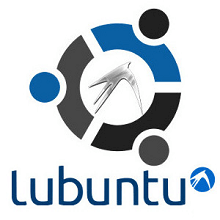
Lubuntu is the lightweight version of the Ubuntu OS. It works on any device because it only requires basic hardware. It may provide an additional desktop experience as one of the greatest lightweight Linux distros. The LXDE desktop environment and the light apps are the distribution's best features. Lubuntu ensures that there will be minimal impact on the system by releasing the most recent stable version, 20.04. It is the smallest Ubuntu edition, with only 256 MB of RAM. Lubuntu is a good choice for giving your desktop a facelift. You will be able to utilize the LINUX OS even if you have no prior knowledge. It also aids in battery preservation and making it the best choice for anyone. Lubuntu features a modern appearance as well, with a built-in arc theme. You will also find Papyrus icons, which allow you to customize them for greater flexibility and a more professional appearance. The Lubuntu community has its pages and forums, and it is based on the Ubuntu stable. Void Linux Operating System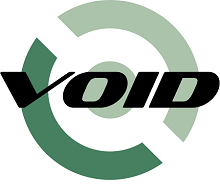
The Void Linux distribution requires 1 GB of storage. It also has the latest stable version and provides all-purpose distribution. One of the best aspects of the distribution is that it can operate on any device. It's interesting because it's not based on any existing ones. It ensures that there will be a maximum advantage by adopting a monolithic Linux kernel and designing with Chromebooks in mind. The package manager is one of the most appealing aspects of the distribution. New packages are created by the developers regularly. Void Linux also has a unique package in the repositories. It also has the XBPS, which allows it to create packages. However, as compared to the Arch or Ubuntu repositories, it doesn't provide a large number of packages. Void Linux has gained popularity every day despite being a very new distribution. It has a community where you can get all of your assistance. When comparing this OS with other distributions, Void Linux is more stable. It also replaces "system" with "runit", making it a unique component. It is the first to choose LibreSSL over OpenSSL and has a rolling release cycle. However, it is not ideal for inexperienced users because of various compatibility concerns. Finally, the monolithic kernel makes Void Linux ideal for Chromebooks. NayuOS
NayuOS is a Unix-like operating system that is not a Linux distribution. It is a derivative of the Chrome OS development version of the Chromium OS. The main goal was to provide a flawless Chrome OS experience with no flaws. Google created the Linux distro, and one of its biggest features is that it allows for simple installation. Removing Chrome OS and replacing it with a Linux distribution could be complex and needs technical skills. The only thing you'll need to install Chromium is a bootable USB stick. NayuOS can be installed quickly by following a few simple steps. It differs from Chrome OS in that it can run some programs locally. However, because it is still in development, you must carefully read all instructions before installing it. Keep in mind that it doesn't support all the Chromebook models. The OS also has other drawbacks that make it an unreliable option for anyone. The distro's creators do have plans for the future. Gallium Operating System
The gallium operating system is an independent Ubuntu-based Linux OS mainly designed for Chromebooks. It's a lightweight operating system that provides maximum compatibility and support on low-end hardware. You have unlimited alternatives and can choose from various additional apps. Gallium OS includes the Xfce desktop environment to keep things lightweight. However, if you require a quicker booting operating system, you may easily replace Xfce with LXDE. However, speed should not be an issue because Gallium OS performs better than most other Linux distros for Chromebooks. It is most important because of removing unneeded modules from Gallium's kernel. It is still essential because of a few unique characteristics, such as using Zram for swapping instead of swapping to disk, which is faster than swapping. In terms of navigation, Gallium OS is comparable to Chrome OS. The distribution is also helpful in extending the life of your Chromebook's battery and supports fixes for faults and bugs that affect Chrome OS devices. Another significant feature of this OS is the integrated Chrome OS mouse driver compatibility. Gallium OS is compatible with most Chrome OS devices, with a few exclusions, including the Viglen Chromebook 11, Sector 5 E1 Rugged Chromebook, and Samsung Chromebook Plus. Phoenix Linux Operating System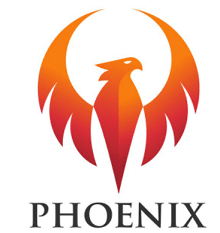
If you've looked into Linux distros for Chromebooks in the past, you may be familiar with Cub Linux. Despite being abandoned less than a year after its first release, Cub Linux quickly gained a cult following due to its strong resemblance to Chrome OS in both design and functionality. It is a continuation of a project that began a few years ago. Like Cub Linux, Phoenix tries to replicate Chrome OS as closely as possible to provide a similar experience to people transitioning from one operating system to another. Phoenix is only focused on being the Linux version of Chrome OS, while Feren tries to emulate Windows and Mac. Openbox is the centerpiece of the Phoenix OS, but you may expect a few additional apps to come pre-installed. The user interface of this OS is equally as simple as its predecessor's, with most of the programs and settings you will need conveniently located in the bottom bar. The first Phoenix Alpha version was released soon after the OS was revealed, and the second one was released in March of 2018. Although the project is officially still active, there have been no fresh updates since then. It is still in its early stages of development, making it extremely unstable. On the other hand, Feren OS was recently upgraded a few months ago. Thus it appears that the developer is currently concentrating on that project for the time being. Elementary Operating System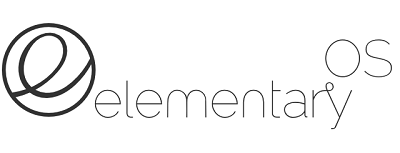
Elementary, Inc. created and maintained the operating system, the desktop environment (named Pantheon), and the related applications. As the name implies, elementary OS is the best Ubuntu LTS-based distro for inexperienced Linux users. It has a user interface similar to macOS with a clean design, and it has widespread support from the Ubuntu community. Because it exports all of Ubuntu's features, package management is pretty simple, and you can also utilize snap to download third-party software. The installation image for elementary OS may be downloaded for free from their official website. Fyde Operating System
FydeOS is a chromium-based operating system that runs on Intel-based PCs. It is offered as a Vmware system image and a PC image. Version 11 is based on Chromium R89 and is compatible with Android and Linux applications. The Play Store is not available because it was designed for the Chinese market, where Google services are prohibited. You can still side-load Android apps. If you want to use the FydeOS, you have to create a FydeOS account, and then you may use your Google Account to log in to FydeOS. However, you may browse as a guest, but you will get minimal capabilities. Bunsenlabs Linux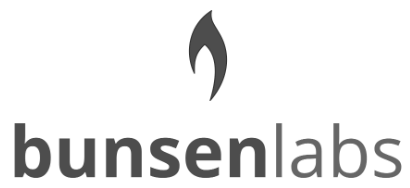
Bunsenlabs Linux is an excellent alternative for anyone looking for a reliable Linux system. The Linux distro for Chromebook evolved from the Crunchbagg Linux, which is known for being light. Even on a low-resource machine, the bespoke OpenBox-based desktop system can function. It's also incredibly powerful, and it could be a good alternative to Linux. However, some of the features can be difficult to grasp, and you may only have access to a limited number of resources. ConclusionAll operating systems are important for Chromebooks. Choosing the best operating system for your Chromebook isn't very clear, but you can choose the operating system according to your requirements.
Next TopicDesign approaches in Operating System
|
 For Videos Join Our Youtube Channel: Join Now
For Videos Join Our Youtube Channel: Join Now
Feedback
- Send your Feedback to [email protected]
Help Others, Please Share










